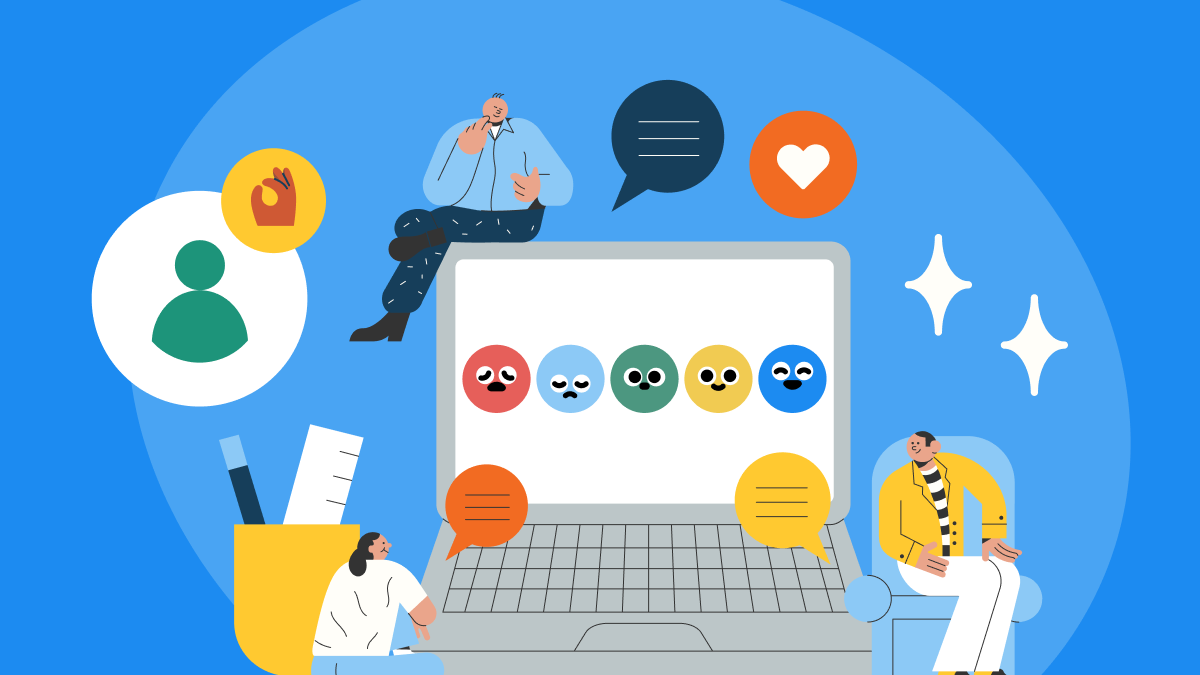According to Singapore’s national strategy, workplace support is instrumental in promoting mental wellbeing for healthy individuals in tier 1. Prevention is better than cure, it’s true. But what about employees who had fallen through the gaps of their organisation’s safety net?
A region-wide study in 2022 has identified the Singaporean workforce as having the worst mental health across Southeast Asia. With symptoms of anxiety and depression costing Singapore S$16 billion in GDP, workplace reintegration is an emerging priority.
But it is a delicate task. If an employee with a mental health condition hits the ground running immediately, they may risk a relapse. On the other extreme, limiting their exposure to work challenges may rob them of their autonomy. What’s an organisation to do (or not do)?
Enter Intellect’s workplace reintegration framework – a comprehensive programme designed to support employers and employees at three levels: individual, environmental, and systemic.

Level 1: Individual (returning employee)
1.1 Formal assessment and monthly coaching/counselling sessions
When you’re feeling under the weather physically, a doctor can provide an estimate of when you might be back in action. Similarly, as employees gear up to return to the office after recovering from or whilst managing a mental health condition, a trained clinical psychologist or general practitioner may conduct a thorough assessment to certify their readiness and the level of support required to facilitate this process. Its key objective is to protect the employees’ wellbeing as they transition back into the workforce.
However, even with the green light from a trained clinician, organisations must understand the potentially nerve-wracking aspects of reintegration. A flurry of concerns might swirl in the returning employee’s mind:
How do they catch up on their workload?
Is the current job scope still suitable for them?
What’s the best way to explain their extended absence to coworkers?
How will they face team members who stepped in to cover their duties?
It’s only natural for feelings of anxiety, guilt, and even shame to surface for returning employees, and urging them to “take it easy” might not suffice. In their most vulnerable moments, these individuals would still require support from mental health professionals. A recommended follow-up plan will be created by the clinician after the assessment is completed.
With Intellect, returning employees can video-call a coach, counsellor, or therapist on any device, ensuring they face no issues scheduling a virtual session during lunchtime if they need real-time support. Alternatively, they may speak to a clinical psychologist at Intellect’s clinics in Tanjong Pagar and Parkway Medicentre at The Woodleigh Mall.
1.2 Year-long access to end-to-end support
Virtual and in-person sessions are just one feature of Intellect’s end-to-end employee benefits solution. Additionally, we offer a 24/7 hotline in 17 countries and an EAP concierge service, all managed by trained responders ready to handle critical incidents.
Intellect’s mobile application also puts a “Cognitive Behavioural Therapist” at the fingertips of returning employees. Among our suite of self-guided interventions are Rescue Sessions – quick 3-minute programs that act as a lifeline for de-escalating stress on the spot.
Titles like “Overcoming Nervous Feelings” and “Handling Guilt & Shame” can help returning employees regulate their emotions, while others like “Regaining Motivation” and “Staying Focused” will come in handy when they return to the grind.

1.3 Quarterly group coaching sessions
Through group coaching sessions, returning employees can build a strong support system alongside coworkers on a similar journey. Intellect has a proven track record in orchestrating group coaching sessions, which are facilitated by trained clinicians and tailored to the needs of returning employees. It’s not just about sharing insights and resources, but creating a network that reminds them that they are not alone.
Level 2: Environment
2.1 Formal training
It’s not sufficient for a returning employee’s department to be a safe space. The broader organisation must also provide a non-judgmental environment, and this is where Mental Health First Aid™ comes into play.
Intellect stands out as the exclusive licensed provider of Mental Health First Aid™, an internationally recognised course adapted for implementation in Asia. This program equips employees to identify stressors, approach coworkers in need, and guide them toward appropriate care in a timely manner. In essence, it empowers your workforce to serve as the first line of defence.
Organisations can support returning employees by training people managers and team members, who influence an individual’s employee experience greatly. Beyond merely spotting signs of relapse and taking appropriate action, such an investment also pays off in terms of team culture, employee engagement, and the bottom line.
2.2 Education
Let’s face it – workplace cultures in Asia aren’t exactly champions of mental health literacy. But in the era of burnout emerging as the second pandemic alongside COVID-19 and the surge of AI, there’s every reason for us to elevate our emotional intelligence game.
At Intellect, our vision has always been to make mental health not just accessible but radically so, which is why we’ve curated an extensive library featuring articles, e-books, and white papers. That includes our guide to talking about mental health with employees – a collaboration between Intellect and EngageRocket.
Beyond the publicly available resources, our partners also have exclusive access to engaging EDMs (Electronic Direct Mail) and webinars that address challenges specific to their organisations.
Level 3: Systems
3.1 Organisational Development (OD) consultancy
Change requires not only individual and team efforts, but also systemic transformation. When it comes to reintegrating returning employees successfully, company leaders and HR may leverage OD consultants with a specialised background in organisational psychology.
Intellect’s OD consultants bring a unique skill set to the table, aiding company leaders and HR in a comprehensive review of existing policies while crafting new ones that prioritise the wellbeing of returning employees. Flexible work arrangements, for example, allow the latter to schedule sessions with their mental health professionals during office hours without any added stress.
Additionally, Intellect’s OD consultants will also take into consideration the clinicians’ professional recommendation, and collaborate with the organisation’s leaders and HR on redefining their roles and responsibilities to accommodate their employees’ needs and elevate job satisfaction in the long run.

Creating a workplace reintegration framework
A holistic approach encompasses individual support, team dynamics, and systemic transformation. At its best, workplace reintegration can be a powerful declaration that your organisation values not just employee wellbeing but also diversity and inclusion.
Furthermore, individuals who have faced mental health challenges bring invaluable perspectives to the table. Some may evolve into mental health champions, while others in managerial roles may learn to lead with vulnerability. In the end, it’s not just about returning to work; it’s about returning to work with a renewed sense of purpose and support.
Reach out to Intellect for an RTO framework and an end-to-and employee benefits solution.








